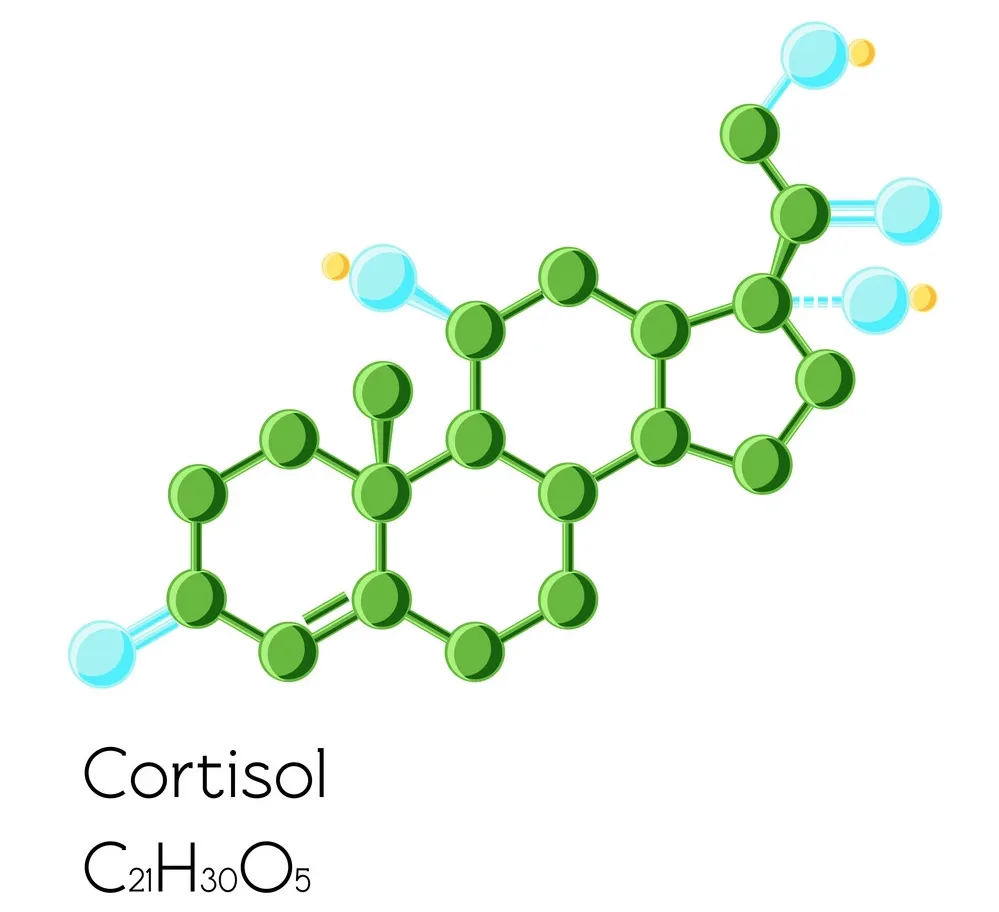What is the effect of ACTH on the adrenal cortex?
Houston Endocrine Center2022-12-10T15:13:46+00:00The adrenal cortex is the outer part of the adrenal glands. It produces hormones such as aldosterone and cortisol, which help regulate blood pressure, electrolyte balance, and metabolism. Cortisol also plays an important role in immune system function, regulating inflammation and helping the body cope with stress. ACTH is produced by the pituitary gland, which stimulates the production of these hormones by the cortex.

The adrenal cortex consists of three distinct cell types.
The adrenal cortex consists of three distinct cell types:
- The outer zona glomerulosa
- The middle zona fasciculata
- The inner zona reticularis
These cells are arranged in zones from outer to inner. Each zone produces a different set of hormones. The main hormones produced are glucocorticoids (e.g., cortisol), mineralocorticoids (e.g., aldosterone), and androgens (e.g., testosterone).
These are all steroid hormones derived from cholesterol by enzymes made in the adrenal cortex cells (the enzymes involved are P450scc for cortisol production, CYP11A1 for cortisone production, HSD3B2 for 17-hydroxyprogesterone production, CYP17A1 for dehydroepiandrosterone [DHEA] conversion into DHEA sulfate).
The adrenal cortex also produces some proteins, including enzymes that regulate other hormones, such as ACTH and epinephrine.
ACTH directly affects the adrenal cortex by causing new cells to form.
ACTH directly affects the adrenal cortex by causing new cells to form. ACTH is a hormone that signals the adrenal cortex to release cortisol. Cortisol is an important hormone for regulating metabolism, blood pressure, and immune function. The steroid hormones are lipid-soluble hormones (fat-soluble molecules) that can pass easily from inside the cell to its cytoplasm. They are produced in the endoplasmic reticulum, the site of protein synthesis within a cell. The steroid hormones include glucocorticoids (cortisol), mineralocorticoids (aldosterone), and sex hormones (estrogen and testosterone). Glucocorticoids are released by the adrenal cortex and help to regulate metabolism and blood pressure. Mineralocorticoids regulate sodium and potassium levels in the blood. Sex hormones are produced by the gonads (testes in males, ovaries in females) and help to regulate sexual development. The steroid hormones are synthesized from cholesterol.
The process begins with removing two carbon atoms from cholesterol by an enzyme called cytochrome P450SCC (side-chain cleavage). This leaves behind a pregnenolone molecule, which contains 20 carbon atoms. The next step is a modification of the molecule. The 5-alpha reductase converts one of the carbon atoms into a hydrogen atom, creating androstenedione (dihydrotestosterone or DHT). Androgens are sex hormones that help to regulate the development of male characteristics during puberty. They play an important role in maintaining reproductive function. The next step in the process is another molecule modification by an enzyme called 3-alpha hydroxysteroid dehydrogenase. This enzyme converts androstenedione into testosterone, which has four carbon atoms removed from its structure.
Cortisol affects many different systems in the body

Cortisol affects the body, including the immune, cardiovascular, and central nervous systems. The main function of cortisol is to help your body deal with stress by increasing blood sugar levels to have energy available when you need it most. Cortisol works together with other hormones, such as epinephrine (adrenaline) and norepinephrine (noradrenaline), to help maintain homeostasis after stress.
When you are stressed, and your body is under the effects of cortisol, blood sugar levels increase, helping your body deal with the stress.
Cortisol is also responsible for triggering the “fight or flight” response, which prepares your body to either stand up and fight off an attacker or run away as fast as possible. This reaction helps prevent you from being overwhelmed by stress.

Conclusion
Cortisol is one of the most important hormones in the body. It affects many different systems, including the immune system and metabolism. Since it has so many functions, the body must maintain proper cortisol levels. Cortisol is produced by cells called corticotrophs within the pituitary gland and released into circulation, where it travels to its target organs to perform its function (such as increased blood sugar).
ACTH stimulates corticotrophs to increase cortisol production; therefore, ACTH helps maintain homeostasis in humans and other species like dogs or cats!
